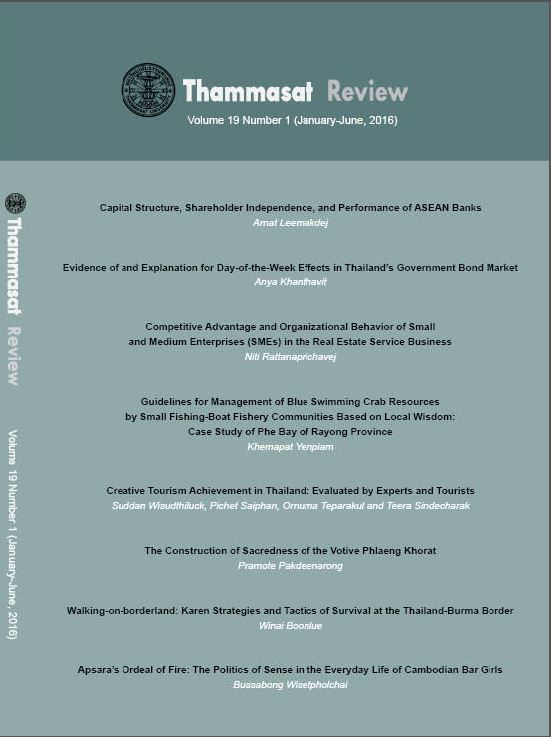Apsara’s Ordeal of Fire: The Politics of Sense in the Everyday Life of Cambodian Bar Girls
Keywords:
Sensory experience, Cambodia, Sex work, Constrained agencyAbstract
This article examines the relationship between sensory experience and the everyday life of Cambodian bar girls, sex workers employed by urban bars and nightclubs. Complicating previous research that views these women as marginalized or victimized, I introduce novel ethnographic evidence exploring sex workers’ strategies for harm reduction. I argue that bar girls develop a sense of hazard, reflecting their agency as individuals and the strong group solidarity they forge in the peril of everyday life in sex-selling space. Forced to confront the occupational dangers of sex work behind closed doors, bar girls mitigate risks of violence and disease by producing a communal space of learning. Yet bar girls’ primary strategy for ascendancy— marriage to a foreign client—actually magnifies their risk of HIV infection as they perform the sexual role of wife.
Downloads
Published
How to Cite
Issue
Section
License
The opinions and ideas expressed in all submissions published in Thammasat Review are solely that of the author(s) and do not necessarily reflect that of the editors or the editorial board.
The copyright of all articles including all written content and illustrations belong to Thammasat Review. Any individuals or organisation wishing to publish, reproduce and distribute a particular manuscript must seek permission from the journal first.








